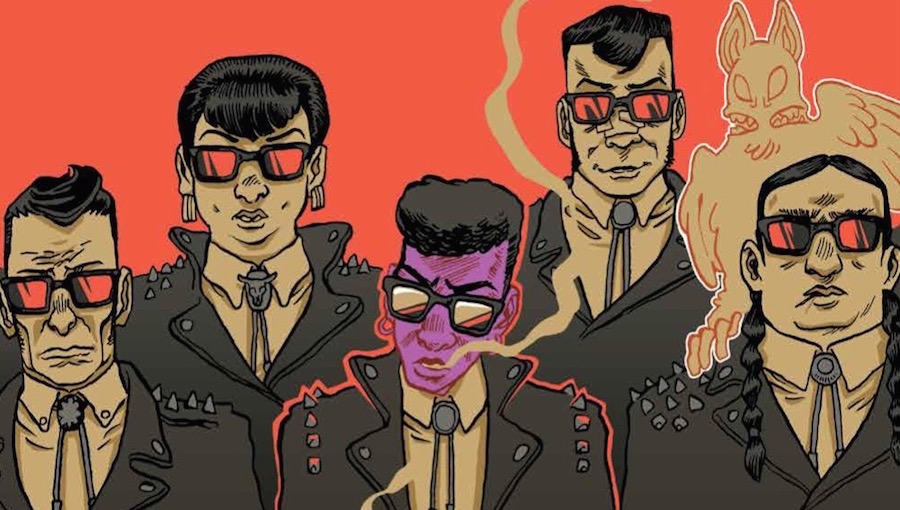Saying you don’t want better is fine when you can’t get it anyway.
It’s more than just sour grapes. It’s the feeling once you find that you’re in the rarefied atmosphere where you don’t have to fight anymore to better your situation, even though you’ve now left others behind in the same mess that you just occupied. Why would you keep fighting? It’s easy for any of us to say that we would continue to do so, because we all can imagine winning that lottery and having the ability to do all the good we ever wanted to do, but history is not littered with those who found that bounty and shared with their former neighbors. And that’s just financially. What Ennay finds in this issue is something wildly more fulfilling: a chance to gain the abilities and status that would make him accepted, no longer a necessary pariah but a member of “decent society” which was always considered impossible. This isn’t a typical “well nothing’s impossible” tale, and I think that the setup here will be much more interesting than just a conflict of bettering a whole group, but more the examination of those barriers that society creates and are considers unsurpassable – why groups aren’t equal to begin with, especially when the groups are simply a result of how you’re born.
I keep talking about how good Spurrier is about nailing the feeling of being an outsider and being able to convey that in a way that’s at once entertaining and empowering for those who can see beyond the metaphor to the parallels in our world. This story is the tale of those who’ve been left outside of the system. Ennay’s fluid sexuality and rocker mentality are of no concern to the community, but as we saw in the last issue, it’s his status as a nogody that brings people up short, that keeps him hiding his true self from the world. Having Bud around grants him privilege that he’d not otherwise have, but in this issue he finds that he’s offered the chance to gain that privilege permanently, if he dances to the piper’s tune. I’ve always loved how the X-Men told the tales of the civil rights movement, but Spurrier’s script gives us a look at what the individual journey is more clearly in a world where no one’s fighting for him.
Jonas Goonface ups his game in every issue; the pitfalls and emotional toil in his expressions are awesome and truly sell the experience. I think that his use of color and light is subtle and effective, while enveloping the world in a grungy squalor that truly sells the destitution of trying to scrape by. No one lives in white towers here, but everyone in the muck is trying to outdo the others. This struggle is brought to life with breathless quality that lingers even after you’ve finished the page.
I hope people will be drawn to this book and this team’s great work, especially considering the polarity of the public discourse today. Everyone’s living their own story, and by being able to see other perspectives, maybe we can all find the empathy and love that make human beings more than just flesh – it makes us whole. Find in these pages the ability to relate, to help define the truth between honest differences of opinion and true evil, and the compassion to see all people as worthy of being able to live their lives simply because they live. We can all use the reminder, and we can all be more.
Share the stories that move you.

